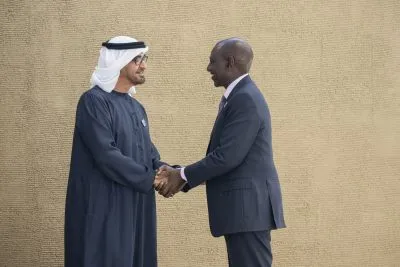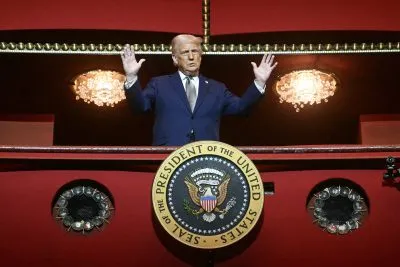Bitter public opposition
Even before the ANC Gauteng’s rebellion, the government was feeling the heat from labour union amalgam, COSATU, its senior partner in the ruling tripartite alliance.
The labour colossus was steadfastly against any measures that would add to the financial burden of the masses. From the outset it campaigned against e-tolling, joining opposition parties and civic groups in marches and other protest action.
The Gauteng chapter of the ANC, having the most to lose and stung at the precipitous drop in support for the party shown by the polls, was the first to reactGauteng Premier David Makhura announced at the ANC’s provincial conference in October that: “The current system is too expensive, traffic flows have been negatively affected. We would rather have a fuel levy.”
This was fighting talk, cutting unambiguously across ANC national policy. And it went further. Outgoing Gauteng premier and ANC ‘Young Turk’, Paul Mashatile, told conference delegates that government agencies like Sanral did not run the country and that it should know its place. “Sanral cannot tell us what to do. We tell them what to do.”
In simple language, the project was brought down by united public opposition, the shambolic implementation of and runaway spending on an e-toll system rolled out by the government and its Sanral cohort. Secret deals with foreign designers and equipment suppliers, and under wraps payment arrangements fuelled and inflamed public anger, polarising emotions across the demographic spectrum in indignation and anger.
The official opposition, the Democratic Alliance (DA), was quick to jump on the hayride of dissent, declaring that “the electronic tolling of Gauteng’s highways is beyond the pockets of motorists and is unjust and must go”.
That’s what the province’s overtaxed and financially hard-pressed electorate wanted to hear and the multi-layered tidal wave of protest rose quickly. The ANC national leadership has found itself out on a limb while its Gauteng faction basks in reclaimed glory.
The Gauteng ANC and the DA were united in their call for road improvement, including tolls, to be financed by an increase in the fuel levy. They calculated that a hike of just five cents a litre ($.045) would raise the billions of rands needed to fund provincial expressway toll costs in a few years. They were joined by the fledgling but rowdy Economic Freedom Fighters party and the labour unions.
President Zuma reportedly expressed his anger at the ANC Gauteng’s disobedience by snubbing an invitation he’d previously accepted to deliver the congress’s closing address. He was replaced by his deputy and the deputy secretary general.
The media went to town on the province’s defiance, prompting an announcement by ANC party spokesman Zizi Kodwa: “The African National Congress dismisses with contempt the accusation that President is angry towards Gauteng for the conference having resolved on e-tolls.”
Managing expectations
An affordable, effective countrywide public transport system would do much to ease the pressure on the roads but its implementation has proved beyond the state’s capacity.
“Unfortunately”, noted the Sanral website in justifying highway tolling as a means to raise road building funds, “road infrastructure has not kept up with the increased traffic demand, resulting in a road and freeway network that is over capacity”.
Such sentiments were welcomed by motorists, and the argument was never about the need for highway tolling; it was always about a sensible way of doing it. The backlash inevitably happened when Sanral tried to steamroller through a project that was unfairly punishing on motorists and preposterously expensive. Anger was further stoked when Sanral tried to hide costs and inadequately interacted with the public.
The Democratic Alliance, used the ANC’s discomfit to rub in the DA’s belief that “e-tolls aren’t working, and never will. They’re unjust and should be scrapped,” declared party spokesman Neil Campbell.
He also took issue with “the shroud of secrecy surrounding the procurement, construction and operator costs of the GFIP, e-tolling and the substantial percentages of revenue leaving the country. This secrecy needs to be lifted, and all aspects of the procurement made public.”
Campbell labelled the system of billing and collection as “cumbersome”, along with Sanral’s “heavy-handedness in forcing motorists to purchase e-tags that speaks of a government out of touch with the needs of the people”.
He said increased transport costs pushed up commodity prices and stifled economic growth, and due to the size of the provincial economy, harmed South Africa’s growth prospects, especially job creation and small and medium enterprises.
The imposition of e-tolling has highlighted South Africans’ ingenuity and resolve in bypassing rules and regulations they disagree with. Increasingly roads are flooded by vehicles displaying bogus or cloned number plates, while non-payers blatantly disregard Sanral’s invoices and threatening letters, secure in the safety of the numbers, now in the millions, of cheerfully delinquent e-toll road users.
“Police can’t handle the epidemic of real crime,” is the oft-expressed sentiment. “Will they really have the time to hand deliver millions and millions of summonses and will overstretched courts really have the time and space to hear them?”
Governments everywhere find it painful and almost impossible to admit they were wrong and the ANC is no exception. The question now is: Will the government back down, eat crow and restart the process, or will it stubbornly take the chance of facing a wrathful electorate come voting day just down the road?
Want to continue reading? Subscribe today.
You've read all your free articles for this month! Subscribe now to enjoy full access to our content.
Digital Monthly
£8.00 / month
Receive full unlimited access to our articles, opinions, podcasts and more.
Digital Yearly
£70.00 / year
Our best value offer - save £26 and gain access to all of our digital content for an entire year!

 Sign in with Google
Sign in with Google 





